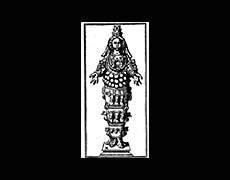
Artemis was one of the most widely worshipped goddesses in the ancient Greek world. She was the daughter of Zeus and Leto, and the twin sister of Apollo. She was the goddess of the hunt, wild animals, and nature. She was also a protector of young girls and a champion of women’s rights.
The ancient Greeks built temples and altars in her honor, and offered sacrifices of animals – particularly deer and rabbits, which were sacred to her. They also held festivals and rituals in her honor, including the famous deer-hunt of structured chaos known as the Adonia.
Who Was Artemis?
The ancient Greeks venerated Artemis as the goddess of the hunt and the protector of young girls. She was associated with wild animals and overlooked nature from her home on Mount Olympus.
Often portrayed as carrying a bow and arrows, Artemis was an expert hunter who could bring down game with astonishing accuracy. She was also renowned for her courage and strength, standing up for herself and for those around her.

Artemis had many gifts and powers that she bestowed upon her followers, including healing, protection, and visibility. She watched over and protected pregnant women and nursing mothers as well as young girls. She also bestowed her knowledge and wisdom on those who sought her counsel.
For the Greeks, she embodied all that was wild and untamed, but also encompassed the discipline and focus necessary to hunt and kill.
The Temple of Artemis
The Temple of Artemis at Ephesus was one of the Seven Wonders of the Ancient World.
Located in modern day Turkey, the temple was dedicated to the worship of Artemis, and was completed around 550 BC.
It was an immense, towering structure that rivaled the pyramids in its grandeur. The walls of the temple were made of marble, and covered in intricate carvings depicting scenes of hunting and other stories of Artemis and her adventures.

The Temple of Artemis was also an important commercial center. With its location at the intersection of two major trade routes, merchants from all over the ancient world made their way to the temple to sell their wares.
This added to the temple’s religious significance and it quickly became a major pilgrimage site for the ancient Greeks. Large numbers of people flocked to the temple each year to pay homage to the goddess and to bring her their offerings.
The Cult of Artemis
The ancient Greeks believed that Artemis could only be honored through sacrifice and ritual. To this end, they built temples and altars for her in many parts of Greece. All of these locations were associated with her cult, which offered special protection and veneration for her and her followers.
Every four years, the Greeks gathered near the temple at Ephesus to commemorate the death and rebirth of Artemis, which was known as the Adonia Festival.
The cult of Artemis was also centered around the notion of a “fierce hunt”. Special organizations of hunters and priestesses were formed to uphold the goddess’s ideals and seek out her favor. They belonged to a secret society that conducted rituals in her name and aimed to become closer to her by sacrificing animals to honor her.

Worshipping Artemis
The ancient Greeks showed their reverence for Artemis through a variety of methods. The most common form of worship was through sacrificing animals, usually in the form of deer and rabbits, which were associated with the goddess.
Other offerings included pieces of fruit, jewelry, and other keepsakes that the worshipper felt would please the goddess.

Small shrines to Artemis were erected in remote locations, where she was believed to dwell and protect the land.
The Greeks also worshiped Artemis in elaborate festivals and rituals. The Adonia Festival was marked by a deer hunt, during which participants dressed in the skins of animals to emulate Artemis. The festival started off with a solemn procession and ended with a great feast. Participants prayed to Artemis for protection, for guidance, and for strength to defeat their enemies.
Artemis was a powerful and widely worshipped goddess, and the worship of Artemis endures to this day.

